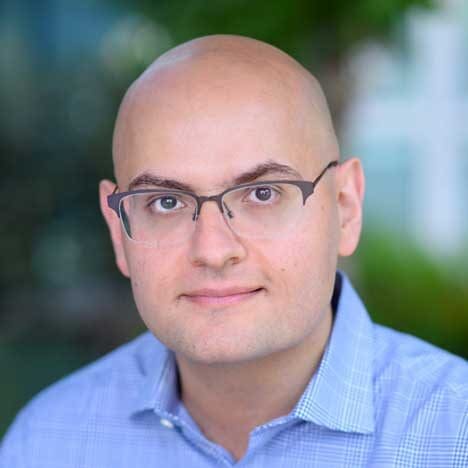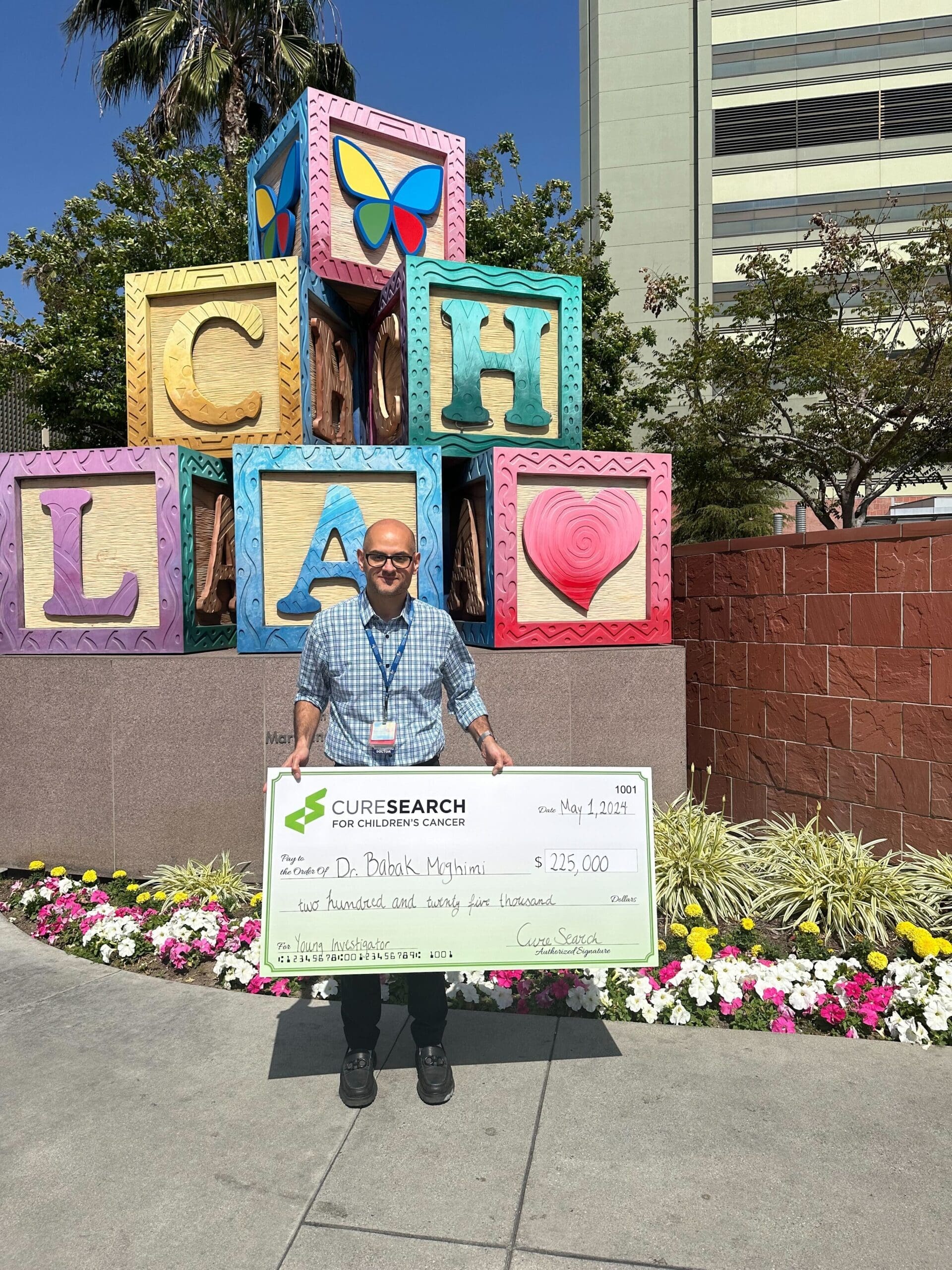BABAK MOGHIMI, MD
Children’s Hospital Los Angeles
CureSearch Young Investigator Award: 2024-2026
Focus: Acute myeloid leukemia (AML)
Project title: Tuning gated CAR-T cells for pediatric AML

This project is supported in part by Team Steve: The Steven Crowe Legacy Fund.
Tackling obstacles to safe and effective pediatric AML treatment
Children with acute myeloid leukemia (AML), the second most common leukemia in children, face a poor prognosis after relapse and significant toxicity from current CAR T therapy. New treatments are critically-needed to prolong survival for these very high-risk patients. Unlike current CAR T treatment for the most common childhood leukemia, acute lymphoblastic leukemia (ALL), patients with AML experience significant toxicity with CAR T therapy. This is due, in part, to the CAR T’s target appearing on healthy cells and tumor cells, driving the therapy to attack both. Novel treatment approaches are in dire need as current AML CAR T-cells have failed to prolong survival for these very high-risk patients.
Dr. Moghimi and team at Children’s Hospital Los Angeles (CHLA) have developed next-generation AML CAR T-cells with improved precision and persistence that could be a promising tool for treating patients with relapsed/refractory AML. Dr. Moghimi's approach avoids healthy cells by targeting a combination of AML antigens, significantly increasing the accuracy and safety of the AML CAR T-cells. This novel approach could be translated into the clinic for pediatric patients at CHLA.
Research Update December 2025:
Dr. Moghimi and his team continue to make exciting progress in advancing their next-generation, logic-gated CAR T cell therapy designed to more safely and precisely treat pediatric AML. Since the last update, they have built a highly realistic 3D bone-marrow organoid model that mimics the environment where AML grows, allowing them to test how well their engineered CAR T cells kill leukemia while sparing healthy stem cells. Additionally, they created a new mouse model of AML with a fully intact immune system, giving them a more rigorous and clinically relevant way to evaluate safety and effectiveness. In parallel, the team has begun uncovering how a key gene, RUNX3, can be used to fine-tune the activation and durability of their CAR T cells, helping them function longer and resist exhaustion. Together, these advances significantly strengthen the pathway toward a safer, more effective CAR T cell therapy designed to reduce side effects, prevent tumor escape, and improve outcomes for children with AML.
Research Update June 2025:
Dr. Moghimi and his team have made major strides in advancing their logic-gated CAR T cell therapy, aimed at safely and effectively treating pediatric AML. Over the past six months, they have developed sophisticated lab models that allow them to precisely control the expression of leukemia markers on cancer cells. This system mimics how tumors in real patients often try to “escape” detection, giving the team powerful tools to study and prevent this resistance. In addition to this, they have enhanced the internal signaling strength of the CAR T cells by modifying a key protein called ZAP70, helping the cells respond more effectively to cancer while avoiding overstimulation that could lead to dangerous side effects. To further improve safety and durability, they are building finely tuned genetic control systems within the T cells to regulate when and how strongly they respond. The team is also streamlining the CAR design to make it more compact and better suited for delivery using gene therapy technologies. Together, these advances are laying the groundwork for a more precise, safer, and durable CAR T cell therapy that could enter clinical testing and ultimately expand treatment options for children with hard-to-treat AML.
Research Update December 2024:
Dr. Moghimi and his team have made significant strides in refining their gated CAR T cell technology, paving the way for use in clinical trials in pediatric AML. During this reporting period, they focused on optimizing CAR T cell signaling by evaluating specific components of the signaling cascade to enhance activation and improve their effectiveness. The team also developed models that mimic patient conditions by varying levels of CD33 and CD123 antigens, enabling the study of immune escape mechanisms. Finally, they have streamlined the CAR T cell design, creating a more compact and efficient structure that simplifies packaging and enhances the potential for advanced clinical applications. These achievements represent significant progress in CAR T cell optimization and lay a solid foundation for next-generation therapies targeting pediatric AML.

“Supported by this generous funding from CureSearch,” Dr. Moghimi adds, “our project aims to develop an effective and safe next-generation CAR-T strategy to treat children with AML by targeting a combination of two antigens, significantly increasing their accuracy and safety."
- Dr. Babak Moghimi
